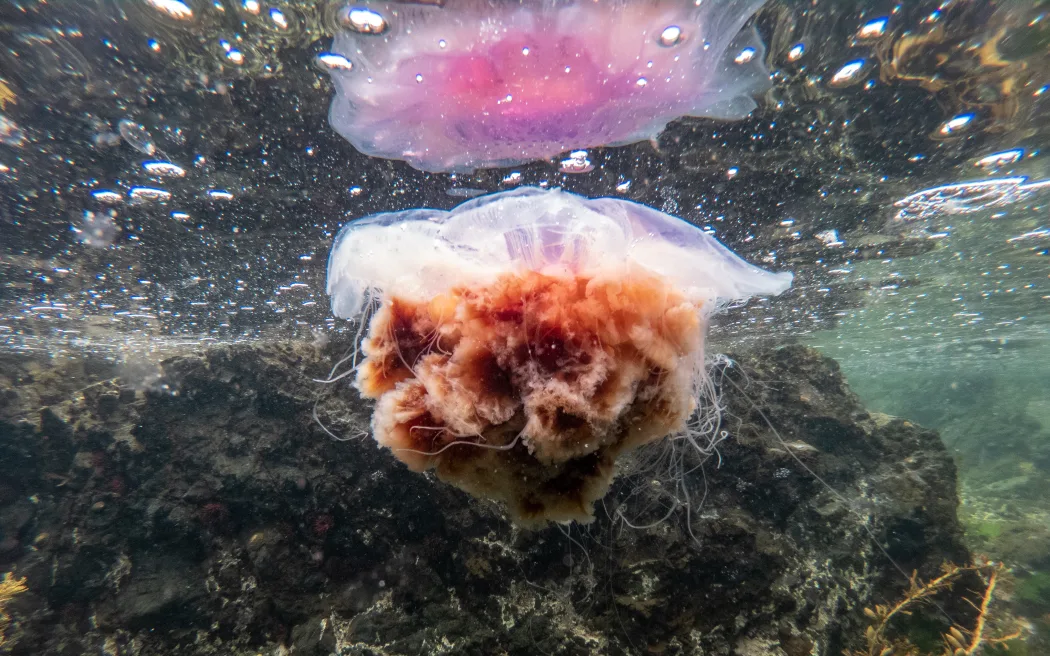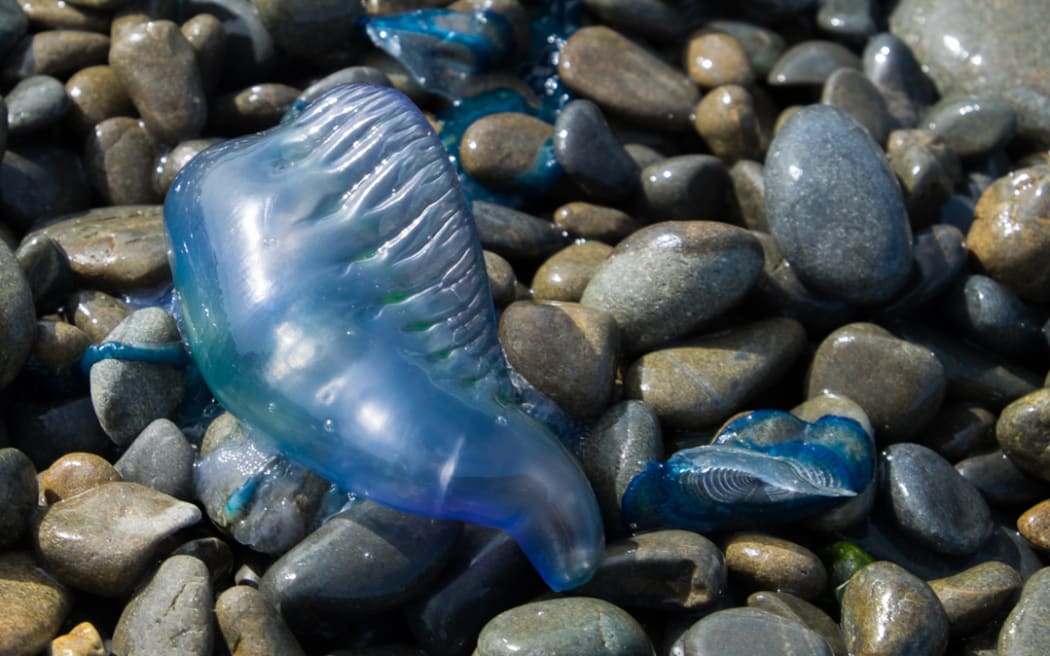By rnz.co.nz and is republished with permission
Beach-goers are being encouraged to avoid a nasty sting by taking care around jellyfish this summer.

Large numbers of bluebottles have been recently reported on several of Auckland’s west coast beaches.
NIWA emeritus researcher and jellyfish expert Dr Dennis Gordon said it was common to start seeing more jellyfish at the beach at this time of the year as they followed their food source.
“As soon as the days start to get longer and there’s more daylight, you get a bloom of more plankton. When there is more plant plankton, there’s more animal plankton, which means you get more shrimps and things – and jellyfish feed on those small crustaceans,” Gordon said.
The moon jellyfish, lion’s mane and spotted jellyfish were most frequently seen on beaches in Aotearoa, although there were about 35 species of jellyfish found in our waters.
“Despite being really beautiful, the lion’s mane and spotted jellyfish can produce a very painful sting, as can the bluebottle,” he said.
Symptoms include the sting area turning purple or red, tingling or numbness, and a burning sensation on the skin.
Most stings are not serious but the treatment is the same. Photo: NIWA
The surface of tentacles is covered in thousands of microscopic stinger cells (nematocysts) that simultaneously inject their venom when they come into contact with skin.
“Those who do plan on getting in the water should be cautious and wear a wetsuit if it is known that there may be jellyfish in the area,” he said.
Most stings were not serious but the treatment was the same.
He discouraged people from peeing or using urine on a sting as it could make the pain worse.
Instead he said anyone stung should flush the sting area with seawater, use a dry towel to remove tentacles, immerse the stung area in hot water for 15 to 20 minutes, and use pain relief or antihistamines if needed.
“Jellyfish are enchanting, delicate creatures that should be appreciated, just not too close,” he said.








